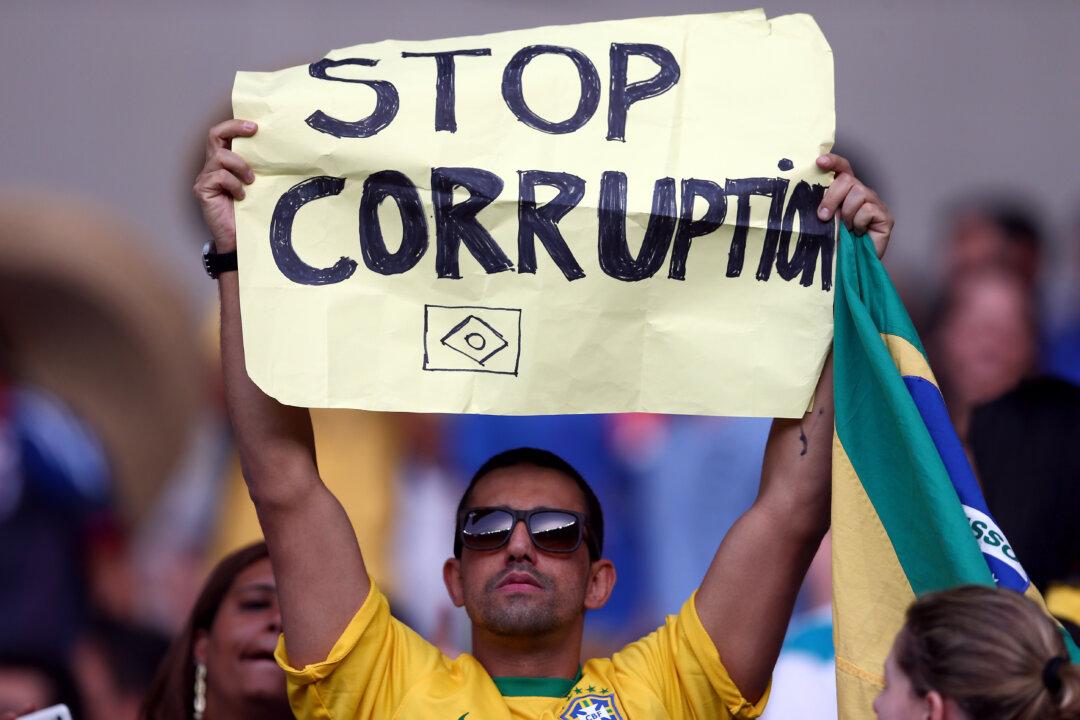The latest scandal and the arrests of seven top FIFA officials last week didn’t exactly come as a surprise for those who have been following FIFA and its corrupt activities for some time. Fourteen in total were indicted by U.S. prosecutors on charges of bribery, racketeering, and money laundering.
Economics, however, could have already predicted that the governmental structure of FIFA was highly prone to corruption.
Alberto Ades and Rafael Di Tella looked at the subject from the vantage point of firms, governments, and the public in a paper published in 1997—and the theory fits bolt-on for FIFA as well.
They looked at several sets of data from different countries and found out that the “lack of political competition is positively associated with the level of corruption … The raw data also show that the degree of openness is negatively correlated with the … corruption indicators.”
Lack of political competition? Sounds familiar—and in the case of FIFA, it’s any kind of competition really. It was founded in 1904 and has enjoyed a monopoly on hosting the most popular sporting event (the soccer World Cup) in the world since then.
What is funny is that there doesn’t seem to be a lot of competition inside FIFA as well. Sepp Blatter, who has stepped down as president in light of the recent scandal, won re-election four times since 1998 and has served as general secretary from 1981 to 1998.
“It is true that private associations are not required to publish their financial statements. I think there is a lot of privacy for private associations, which is not necessarily a bad thing, but it can help corruption,” says Florian Schwab, a journalist at Swiss weekly Weltwoche.
If we look at FIFA’s inside dealings, such as different country delegates like Chuck Blazer taking bribes in order to vote for a certain country to host the World Cup, classic economic theory kicks in.
According to Ades and Di Tella, the public is interested in maximizing social welfare. In this case, this would refer to soccer fans being interested in a better game and more entertainment.
However, the public has little or no control over FIFA, much less than would be the case for an ordinary country with general elections and a court system.





